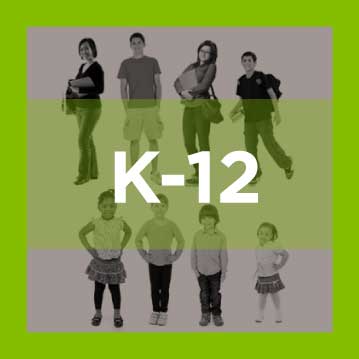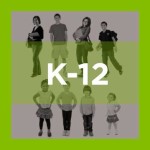So far in 2016, close to 1,000 K-12 education bills have been signed into law. While the heavy hitters such as accountability, assessments and charter schools continued to receive attention, more bills were passed on student health than any other topic. At least 56 bills related to the mental and physical well-being of students were passed in at least 27 states.
Data from the Centers for Disease Control and Prevention (CDC) demonstrate that students who perform better in school are significantly less likely to be physically inactive, have unhealthy dietary behaviors and report feeling sad, hopeless or suicidal. The CDC has concluded that the “academic success of America’s youth is strongly linked with their health.”
Although overall student health is just one of many independent variables contributing to student achievement, it is a variable over which states can have significant influence. Improvements to school health policies can contribute to the creation of healthier learning environments, improved academic achievement and increased social, emotional and physical health. To create healthier school environments, state legislators can create guidelines surrounding a host of student health inputs, including but not limited to:
- Physical activity requirements.
- Physical and nutrition education requirements.
- Food standards.
- Behavioral health services and supports.
Highlights from the 2016 legislative sessions include:
- Rhode Island B. 2669 requires public schools to provide students in grades kindergarten through six with at least 20 minutes of free-play recess each school day.
- Virginia B. 211/H.B. 357 requires schools to provide at least 20 minutes of physical activity per day or an average of 100 minutes per week during the regular school year for students in grades kindergarten through five.
- Michigan B. 801 provides funding for a pilot project to support districts in the purchase of locally grown fruits and vegetables for use in school lunches, with priority to districts with a high percentage of kids eligible for free lunch.
- Maryland B. 771 requires the State Department of Education and the Department of Health and Mental Hygiene, in consultation with stakeholders, to establish a plan to provide diabetes care services so that students with diabetes can: remain safe in school, be supported for optimal academic achievement, and fully participate in all aspects of school programing, including after-school activities and other school-sponsored events.
- District of Columbia B. 361 requires the Office of the State Superintendent of Education to 1) adopt a rule requiring all district teachers and principals in public and charter schools to undergo training on suicide prevention, intervention and post-intervention every two years and 2) develop and publish online written guidance to assist local education agencies in developing policies and procedures for handling various aspects of student mental and behavioral health.
- Kansas B. 323 enacts the Jason Flatt Act. The act requires the board of education of each school district to provide suicide awareness and prevention programming to all school staff. The programming must include at least one hour of training each calendar year based on programs approved by the Kansas State Board of Education, which could be satisfied through independent self-review of suicide prevention training materials and a building crisis plan developed for each school building, including steps for recognizing suicide ideation, appropriate methods of interventions and a crisis recovery plan.
The Education Commission of the States’ policy team has been tracking and summarizing education-related bills for all 50 states and the District of Columbia for more than 20 years. You can find them here. Bills can be sorted by state, year and topic area. You can navigate directly to bills related to student health here.










